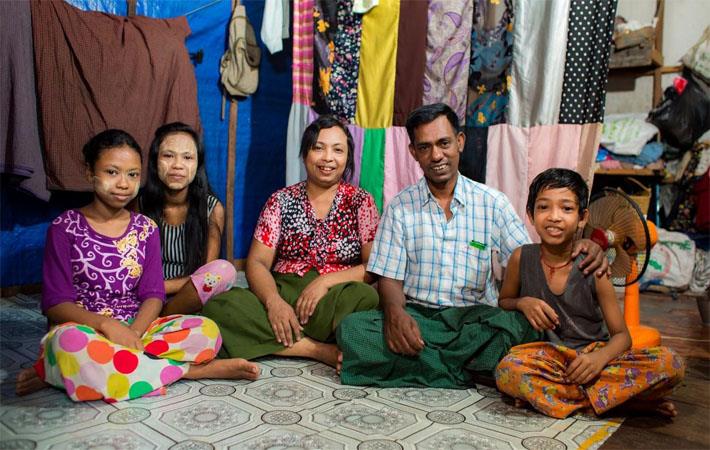As of the beginning of October, 70,546 cash support payments totalling over 5.4 billion MMK (over €3.5 million) have been issued to Myanmar's garment and footwear factory workers who have been laid off or furloughed, or who have had working days significantly curtailed by reduced order demands from abroad. Workers from over 340 factories have now been assisted.
Factory workers from all States and Regions of Myanmar have now received some support. All of the cash support assistance has been transfered using the mobile money platform of Wave Money, according to a press release from SMART Textile & Garments, which is funded by the European Union and co-funded by private sector partners like brands, retailers and factories.As of the beginning of October, 70,546 cash support payments totalling over €3.5 million) have been issued to Myanmar's garment and footwear factory workers who have been laid off or furloughed, or who have had working days significantly curtailed by reduced order demands from abroad. Workers from over 340 factories have now been assisted.#
Workers receiving support indicate that these payments are most often their only source of income during the pandemic and that nearly all support is used to cover housing and food expenses, the press release said.
Pregnant workers and workers who have recently given birth are also provided with social and behavioral change counseling sessions on maternal and infant nutrition by three local doctors, including a nutritionist.
The small percentage of women workers identified as not having adequate access to smart phones were offered such phones free by civil society organisation Pyi Gyi Khin.
The EU Myan Ku Fund is a €5-million COVID-19 response effort, managed by UNOPS, and implemented by sequa gGmbH in cooperation with partners from employer organizations, trade unions and civil society.
Despite the relative success of the Myan Ku effort, the economic situation in the Myanmar garment industry is immensely difficult as the pandemic rages on. A survey conducted in late September of 345 garment factory workers who were mostly laid off between March and June revealed that only 3 per cent had been able to transition back into full-time employment.
During June this year, apparel imports from Myanmar were down by 41 per cent in the EU, 14 per cent in Japan and 10 per cent in the United States, the three main export destinations for Myanmar apparel products.
Fibre2Fashion News Desk (DS)
